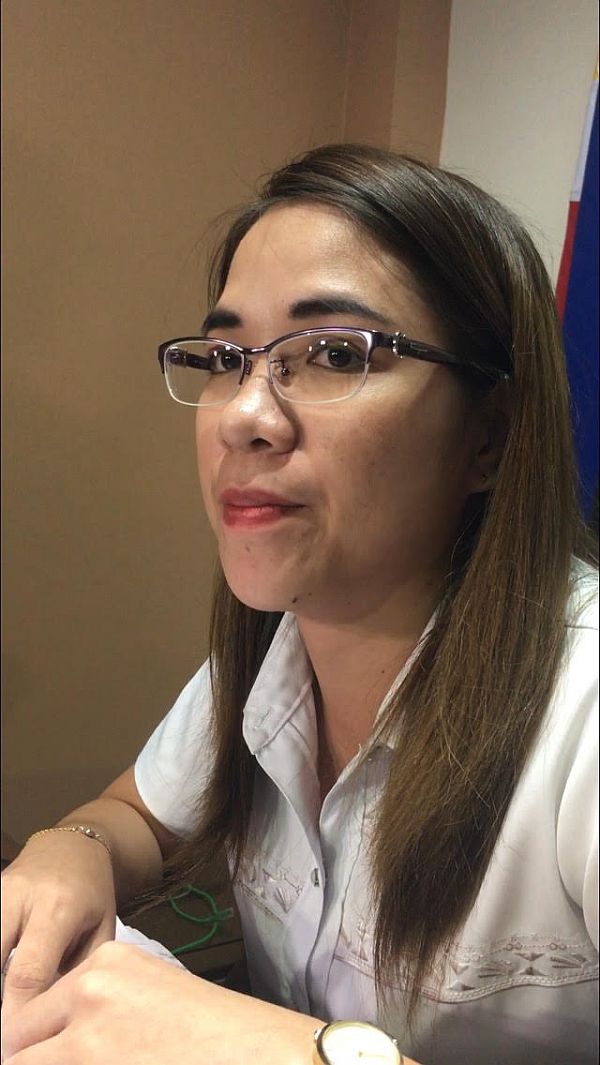
NOB
THE Philippine Drug Enforcement Agency in Central Visayas (PDEA-7) is preparing to take on anew the role of taking the lead in the government’s war on illegal drugs in the region but with more optimism as a new chief takes over the anti-narcotics agency’s helm.
Emerson Margate, who previously was the PDEA chief of Region 5 or Bicol Region, has been appointed by PDEA Director General Aaron Aquino to be PDEA-7’s new director, a position which has been left vacant for more than a month after then-director Yogi Filemon Ruiz was appointed to take on a Bureau of Customs job.
Lawyer Ana Lyn Hernandez-Nob, the current officer in charge of PDEA-7, said that they just received a memorandum on Friday about the newly appointed PDEA-7 chief.
“Effective (yesterday, Friday) he is the director of PDEA-7. However, he is out of the country for official engagement,” Nob said.
Nob said he would be in Cebu by the middle of November.
She said that she had spoken with Margate, who expressed his excitement about serving in the region.
Meanwhile, Chief Supt. Mario Espino, Police Regional Office in Central Visayas (PRO-7) director, assured close coordination with PDEA-7 as the Philippine National Police (PNP) takes a back seat in the war against illegal drugs.
Coordination
Senior Supt. Jonathan Cabal, Regional Intelligence Division (RID-7) chief, said that Espino ordered them to help the anti-narcotics agency in any way they can.
“We will help the PDEA in whatever capacity. Of course we can’t shy away from our mandate also which is continue to serve and protect the public,” Cabal said.
Cabal said that they would continue to monitor drug personalities in the region.
He said that Tokhang Operations are all suspended including the creation of drug enforcement units (DEUs) in every police stations, but the surveillance of those drug personalities will still continue.
“The monitoring will be there. Kasi yung intelligence unit is really mandated to check the activities of those drug personalities. But as I’ve said earlier, Regional Director Espino wants us to help PDEA in any way we can,” Cabal said.
Rights advocates
As both the PNP and PDEA prepare to take on their new roles in the anti-illegal drug campaign, two human rights advocates share their concerns about PDEA’s new role, citing the lack of manpower as the agency’s main challenge.
Retired Cebu City Regional Trial Court (RTC) Judge Paredes told Cebu Daily News in a phone interview that while he expressed support on giving PDEA the task to solely operate pertaining to illegal drugs, he was still concerned of the agency’s capacity to achieve its mandate.
“PDEA is in a better position to enforce the law pertaining to illegal drugs. But my only concern there is their manpower. I know they have very limited resources and agents, and I think they cannot cover all (operations against illegal drugs),” said Paredes.
He also suggested for the government to hire more agents for PDEA to successfully cover and implement operations against illegal drugs.
“Definitely, more people, agents, should be placed under the PDEA to carry out this particular mandate,” Paredes stated.
On Wednesday evening, President Rodrigo Duterte renewed his mandate to have PDEA as the only agency tasked to carry out programs and operations in line with his administration’s intensified war against illegal drugs, which is a move welcomed by the retired judge.
Duterte made the similar move last January following reports of scalawags within the police ranks and abusive law enforcers allegedly killing individuals in the guise of the war against illegal drugs.
However, he quickly reinstated the police without making any major reforms. Police then announced they were back fighting the drug war with a campaign named: “Double Barrel Re-Loaded.”
Fewer EJKs
“PDEA, as the lead agency on ensuring that there will be no violations on the Dangerous Drugs Act (Republic Act 9165), is better equipped than the PNP (Philippine National Police). They are the experts when it comes to operations against illegal drugs. This is why, for me, it is right to have the mandate on PDEA,” Paredes added.
The President’s mandate also entailed the suspension of the Tokhang (toktok hangyo) from the police. With the police out of the picture, Paredes expressed hope for instances on extrajudicial killings (EJKs) to decrease, if not completely eliminated, as President Duterte’s campaign against illegal drugs continues.
“Well, with these outcomes, it is more likely that EJKs — EJK victims will be lesser. But hopefully, EJK will end with the PDEA on the helm of the anti-illegal drugs campaign considering that among the 7,000 victims of EJKs came from the hands of abusive policemen,” said Paredes.
Undermanned
Human rights lawyer Demetrio Barcenas also shared the sentiments with Paredes, and said that he predicts the President’s recent mandate to come out as unsuccessful.
“I doubt its success because PDEA is really undermanned. With this, I really don’t think they can solve the drug problem in the country,” added Barcenas.
However, he said he remained neutral on President Duterte’s decision to give the responsibility on illegal drugs to PDEA. Unlike Paredes, Barcenas stated a decrease in the number of EJK victims will not likely happen.
“As long as our President is waging a bloody war against illegal drugs, as long as it is okay for him to kill all drug suspects in the streets under the hands of abusive individuals — be it the police or vigilantes — I don’t think EJK will be eliminated,” said Barcenas./With Inquirer.net report